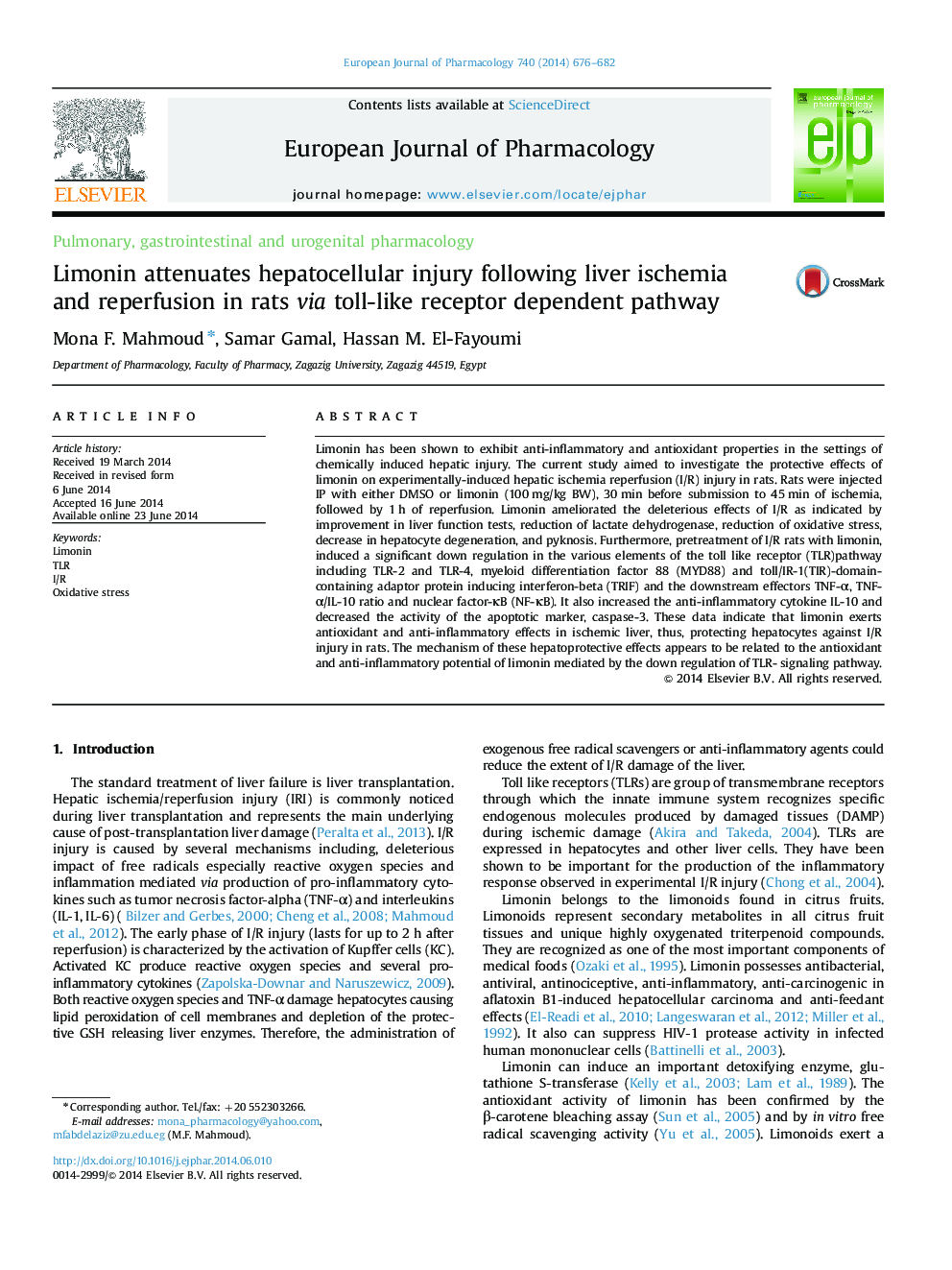| Article ID | Journal | Published Year | Pages | File Type |
|---|---|---|---|---|
| 2531668 | European Journal of Pharmacology | 2014 | 7 Pages |
Limonin has been shown to exhibit anti-inflammatory and antioxidant properties in the settings of chemically induced hepatic injury. The current study aimed to investigate the protective effects of limonin on experimentally-induced hepatic ischemia reperfusion (I/R) injury in rats. Rats were injected IP with either DMSO or limonin (100 mg/kg BW), 30 min before submission to 45 min of ischemia, followed by 1 h of reperfusion. Limonin ameliorated the deleterious effects of I/R as indicated by improvement in liver function tests, reduction of lactate dehydrogenase, reduction of oxidative stress, decrease in hepatocyte degeneration, and pyknosis. Furthermore, pretreatment of I/R rats with limonin, induced a significant down regulation in the various elements of the toll like receptor (TLR)pathway including TLR-2 and TLR-4, myeloid differentiation factor 88 (MYD88) and toll/IR-1(TIR)-domain-containing adaptor protein inducing interferon-beta (TRIF) and the downstream effectors TNF-α, TNF-α/IL-10 ratio and nuclear factor-κB (NF-κB). It also increased the anti-inflammatory cytokine IL-10 and decreased the activity of the apoptotic marker, caspase-3. These data indicate that limonin exerts antioxidant and anti-inflammatory effects in ischemic liver, thus, protecting hepatocytes against I/R injury in rats. The mechanism of these hepatoprotective effects appears to be related to the antioxidant and anti-inflammatory potential of limonin mediated by the down regulation of TLR- signaling pathway.
